During a 23 hour layover in Shanghai I finished an excellent book called Alibaba: The House That Jack Ma Built, by Duncan Clark. Here are three reasons you might want to check it out:
1.) If you are curious about the rise of the internet, how it happened, the major players, the timing, failures, future, etc.
2.) If you agree with the statement: watch out for China.
3.) You like Forrest Gump and success stories.
For this post, I’m going to focus mainly on #3. We are living in an era of uncertainty in regards to politics, globalization, and how to save our declining environment. I believe it’s important and encouraging to follow the story of someone who had a strong, singular vision and achieved it, despite years of doubt and setbacks. In an era of impatience, it’s important to learn lessons from someone who waited decades for their chance to succeed. This someone is Jack Ma. He started Alibaba, an e-commerce company that provides consumer-to-consumer, business-to-consumer, and business-to-business sales service via web portals. It is the most dominant retailer in the world (surpassing Walmart in 2016), generating more revenues than Amazon.com and Ebay combined. When the company went public in 2013, it was the largest IPO in history, being valued at $25 billion dollars.
So how did a poor, country boy in China who looks like E.T. rise to become a billionaire who recently met with Donald Trump (promising to create 1,000 jobs in the U.S.):
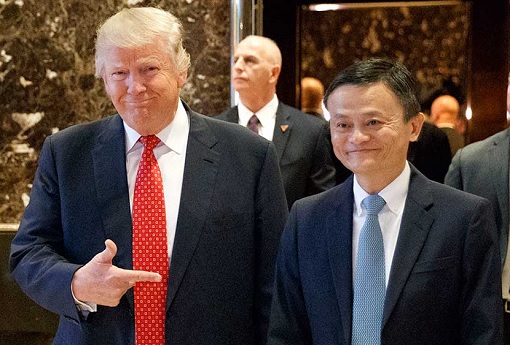
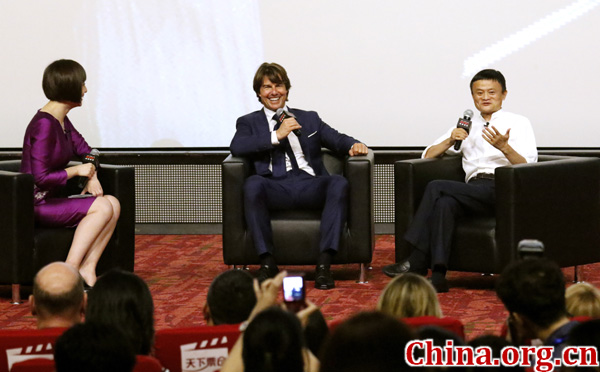
who bought a soccer team for $200 million when he was drunk:
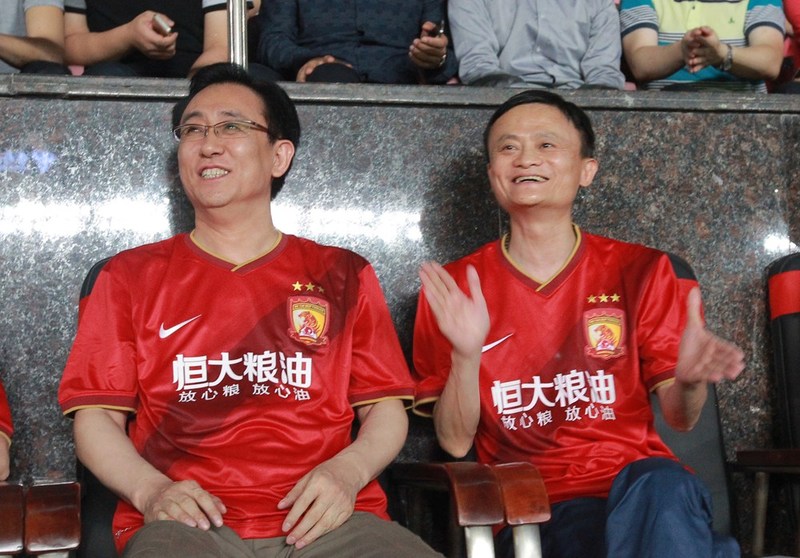
and who in 2015 purchased the $23 million Brandon Park Estate in New York’s Adirondack Mountains?
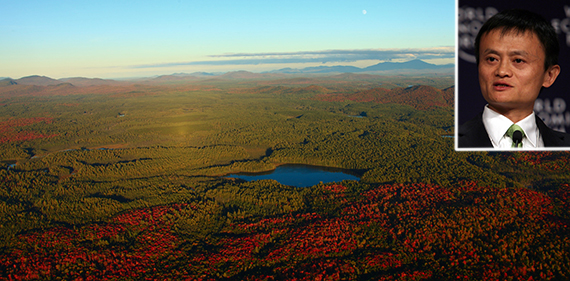
Yes, Jack Ma is everywhere. He is also strategic, charismatic, well-spoken, and wise. His favorite movie is Forrest Gump, who he frequently quotes in his speeches:
“People think he [Forest Gump] is dumb, but he knows what he’s doing.” -Jack Ma
“I am a very simple guy, I am not smart. Everyone thinks that Jack Ma is a very smart guy. I might have a smart face but I’ve got very stupid brains.” -Jack Ma
Where did these stupid brains come from?
Jack Ma was born in 1964 in Hangzhou, a city one hundred miles to the southwest of Shanghai. His birth name was Yun Ma, which means cloud horse. As a boy, he fell in love with the English language and literature, specifically readings of Mark Twain’s The Adventures of Tom Sawyer, which he listened to on a shortwave radio.

In 1978, China launched the new “open door” policy in pursuit of foreign trade and investment. In 1978, only 728 foreign tourists visited Hangzhou. The following year, 40,000 tourists came to the city. Yun Ma saw his chance.
For the next 9 years, between the ages of 14 and 23, Yun Ma would wake up at dawn, teach himself English, and ride his bike to the Hangzhou Hotel to give tours to foreigners. He honed his communication skills. An American tourist whose father and husband were named Jack suggested the name and “Ma Yun” became known in English henceforth as Jack. I like that name.
“English helps me a lot. It makes me understand the world better, helps me meet with the best CEOs and leaders in the world, and makes me understand the distance between China and the world.” -Jack Ma
At one point, an Australian family who were visiting Hangzhou took Jack under their wing. One of the sons became Jack’s pen pal, and they brought Jack on a trip to Australia.
“Everything I learned in China [before the trip] was that China was the richest country in the world. Then I arrived in Australia and realized it was totally different. I started to think you have to use your own mind to judge.”
But despite his inner independence, Jack would face years of failures and struggle. His first job was delivering heavy bundles of magazines from printers to the Hangzhou train station. He was rejected when he applied for a job as a waiter in a hotel because he wasn’t tall enough. When he took the Chinese test to get into college, he failed the gaokao math section with a score of 1/120 and wasn’t allowed in. The next year he took the test again, scored better on the math section (19/120), but his overall school dropped and he still wasn’t accepted. Jack would later speak of failing the test twice as a badge of honor.
After the second failure, Jack sent out 7 job applications. They were all rejected. One of the applications he sent out to KFC and of the 24 candidates, he was the only one not picked.
Finally, in 1984, at the age of 19, Jack scored 89 in the math section (several points below the normal acceptance rate) and was accepted to a local university. He would be learning/teaching English at the Hangzhou teachers college. He taught there for 2 years.
After class, Jack worked part time on his first company called Haibo. Haibo means “Hope,” but has a literal translation of “vast like the sea.” Haibo was an English translation company.
First Encounter with the Internet
In early 1994, Jack was asked by the government of Tonglu County to assist as an interpreter. They wanted him to help resolve a dispute with an American company over the construction of a new highway. The American company had promised to build a highway between Hangzhou and Tonglu, but the negotiations were in a deadlock. Jack traveled to America for the first time.
In Las Vegas, Jack Ma was kidnapped. The American company he was investigating did not exist, his host was a crook, and he found himself in serious danger. The host wanted Jack to work for him and locked him in a hotel room. Jack escaped, won $600 on slot machines in the casino, and took a plane to Seattle.
In Seattle, Jack stayed with Bill Aho’s (a fellow teacher/co-worker) son-in-law. While walking around the neighborhoods, Jack would point at various houses and say, “I’m going to buy that one, and that one, and that one.” At the time, he didn’t have a nickel.
Bill Aho’s son-in-law (Stuart Trusty) had set up an Internet consultancy firm called Virtual Broadcast Network. Trusty showed Jack what the internet was. Back then, the Internet was mostly just a directory for governments and businesses, but Jack seemed excited. The first word he searched was beer. He found American Beer, German beer, but no Chinese beer. Then Jack searched ‘China’ and no data appeared. The seed was planted.
Back in Hangzhou, Jack set about building his concept of an online yellow pages. He named the business China Pages. During this time, he saw the dean of his school on a bicycle buying vegetables. The dean encouraged Jack to keep working hard at teaching. Jack saw a limit to ambition as a teacher. He told himself he would put everything towards this new venture.
In April 1995, Jack borrowed money from his relatives, including his sister, brother-in-law, and parents and started the Hangzhou Haibo Network Consulting (HHNC). His wife, Cathy, was the first employee.
But the problem was that nobody could get online in Hangzhou. It is difficult for us to imagine now, but Jack was telling businesses, “Give me your money ($1-2 thousand dollars) and I’ll put your business info into this invisible, magic place.” Jack would later say, “I was treated like a con man for three years.” When a business did agree to a deal, Jack would mail the website designs to Seattle for them to set it up.
In 1996, HHNC was near bankruptcy. The world wasn’t ready for the internet yet. Jack was too early. An additional problem was that Jack’s sites were too rudimentary. They were just directories.
In November, 1997, Jack left his company. “At that time I called myself a blind man riding on the back of blind tigers. Without knowing anything about technology or computers, I started the first company. And after years of terrible experience, we failed.” He started work at the government’s Foreign Trade of Economic Cooperation, which to me sounded very similar to The Ministry of Magic:
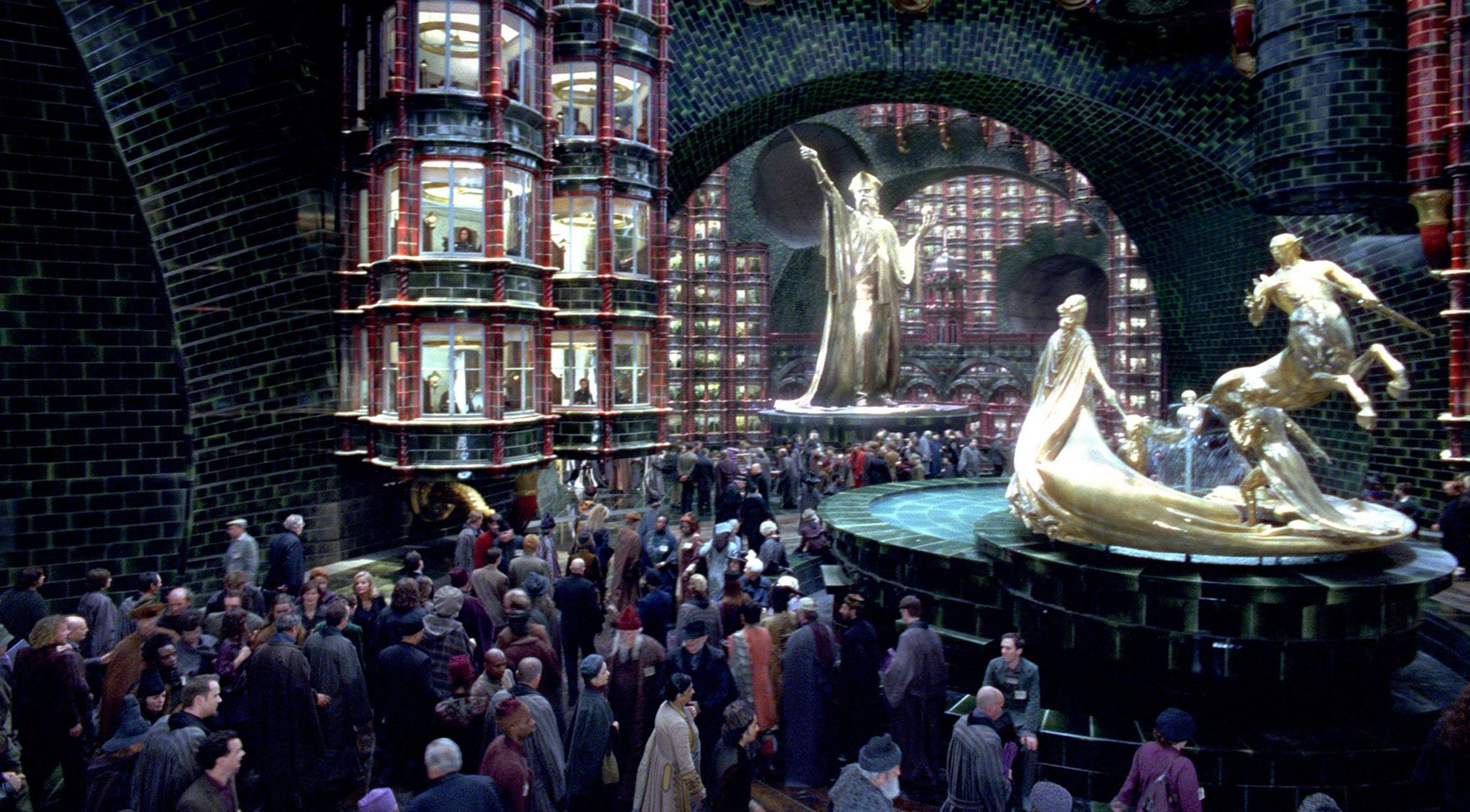
Jack was like a fish out of water, and had to bide his time until he could jump back into the entrepreneurial sea of China’s internet.
This chance came in 1999, when Jack founded Alibaba. He knew he was on to something big, would frequently give inspiring speeches to his few employees, and began filming all of their meetings. In early 1999, China had 2 million internet users and personal computers cost $1,500. The number of users would double in six months and reach 9 million by the end of the year. Jack and Alibaba were ready to ride the internet wave. In 2000, Jack traveled to Berlin and gave a speech on the internet in a 500-person auditorium to 3 people.
Most of Alibaba’s competitors at the time were business to business. Jack knew they needed to find their niche, and decided to stick to small businesses. Instead of focusing on the whales they focused on the shrimp. Jack says he found inspiration in Forrest Gump’s Bubba Gump Shrimp Co.
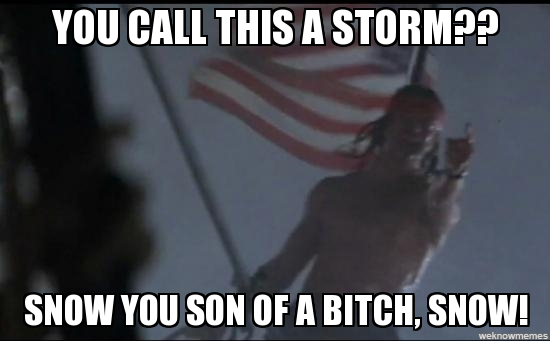
Jack Ma said, “85% of the fish in the sea are shrimp sized. Who’s making money from whales? People are making money from shrimp.”
Alibaba grew (Goldman Sachs invested $5 million in the company), but the internet bubble was about to pop. Right before the dot com crash, though, another major investment by Softbank would keep Alibaba afloat. The investment of $20 million occurred because of a brief meeting between Jack and the CEO of Softbank, Masayoshi Son:
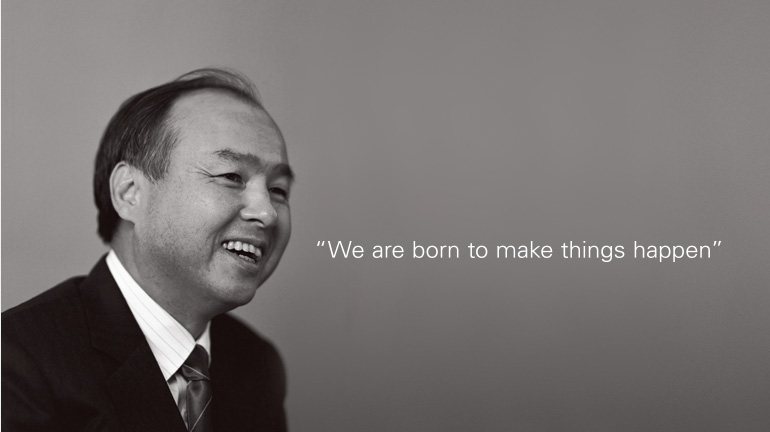
When Masayoshi was asked why he invested $20 million dollars after such a brief meeting, he replied,
“It was the look in his [Jack Ma’s] eye, it was an ‘animal smell’…it was the same when I invested in Yahoo!…when they were still only five to six people. I invested based on my sense of smell.”
Jack Ma would later describe Masayoshi as an “iron rooster,” which in Chinese is an idiom for “very cheap,” [you can’t pluck a single feather out of an iron rooster]. But this iron rooster believed in Jack Ma. A worker for Softbank said, “He’s [Masayoshi] crazy, but Ma’s also crazy. It’s very common for crazy people to like each other.”
The dot.com decline (2001-2002) were dark days for Alibaba, but they survived. Jack’s strategy was to “be the last man standing. If I had a hard time, my opponents had an even harder time. Those who can stand and manager will win eventually.”
But despite the setback, knowledge of the internet was growing. Between November 2002 and July 2003, an outbreak of SARS in southern China caused an eventual 8,098 cases, resulting in 774 deaths. But SARS also convinced millions of people, afraid to go outside, to try shopping online instead.
War Against Ebay
Ebay would try to become a major player in the Chinese Internet Market. Ebay would eventually lose the war against Alibaba. Here’s why:
1.) Ebay looked at their China competitors as enemies. Jack Ma had a different strategy: “Competition is the greatest joy…if you can’t tolerate your opponents, you will definitely be beaten by your opponents. If you have no enemy in your heart, you will be invincible in the world.”
2.) Ebay purchased Eachnet in China in order to compete, but maintained an arrogant, “leave-it-to-the-experts” attitude which demoralized the Eachnet team. China’s Ebay site looked foreign to local users. They didn’t even have a customer service number.
3.) Ebay didn’t know about the Chinese consumer. In website design, culture matters. In America, websites like Google are popular with their clean lines and uncluttered negative space. In China, this seems dull. Check out the old Alibaba site:

Commerce in China is very strange. Alibaba started with unconventional, non-standardized products. And they understood that individuals could be happy making 1 cent on a sale.
3.) Facing spiraling costs, Ebay’s Eachnet started charging fees to sellers, adding commissions on all transactions. Taobao (part of Alibaba) didn’t charge merchants or consumers to transact. Chinese merchants at the time were “allergic to paying fees,” and while Taobao’s free policy was dangerous, the site steadily gained popularity.
4.) Because of Eachnet’s charging policy they had to worry about policing, while Taobao encouraged interactions between merchants and consumers. Taobao even created a chat window.
5.) Ebay “moved” their hosting website from China to America. With China’s government firewalls, websites overseas took much slower to load. Furthermore, when the engineers wanted to change one word on the site, it would take 9 weeks. If they wanted to change a feature on the website, it would take a year.
6.) Ebay had an effective monopoly in the U.S. and was complacent. Meg Whitman, who was the CEO of Ebay during their war with Alibaba, would say years later: “It was not a market where you can take a product or system in the U.S. and export it to China.” As Jack said, “Ebay is a shark in the ocean, but I am a crocodile in the Yangtze River. If we fight in the ocean, we lose, but if we fight in the river, we win.”
7.) An emphasis on capital over people. Ebay invested 100 million into China, but Jack at the time just laughed, “They [Ebay] has big pocket, but we cut a hole in that pocket. Some say the power of capital is enormous. Capital does have its power. But the real power is the power of the people controlling the capital. People’s power is enormous. Businessman’s power is inexhaustible.”
Alibaba won the war. In 2005, a desperate Ebay condescendingly offered to buy Taobao for $150 million dollars. Jack replied, “No, we’re just getting started.” Then Ebay offered $900 million. Jack declined and the meeting was over. Later that year Yahoo! would invest $1 billion in Alibaba.
Today, Jack Ma is worth $28.7 billion dollars (according to Forbes, 3/1/2017). “A record $463 billion of business transactions were conducted on Alibaba’s retail platforms in the fiscal year through March 2016.” And last year, on “Singles’ Day” (a retaliation against Valentine’s Day which celebrates the country’s single population) the site recorded nearly $18 billion in sales in 24 hours.
If you still don’t believe it’s important to be aware of Jack Ma and Alibaba, while writing this essay I discovered a Business Insider Article written today on the same subject. Check it out if you want to learn more.
And if you’re wondering about the picture of Jack with the black lipstick and the tall mohawk…Jack dressed up as a punk rocker for a performance in front of 20,000 Alibaba employees at the company’s anniversary event/talent show. He came a long way from his Berlin speech in 2000 to 3 people.
And yes, Jack Ma is crazy. But as the wise Forrest Gump once said, “What’s normal anyways?”
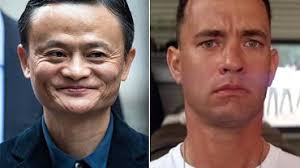
Subscribe below. Thank you.

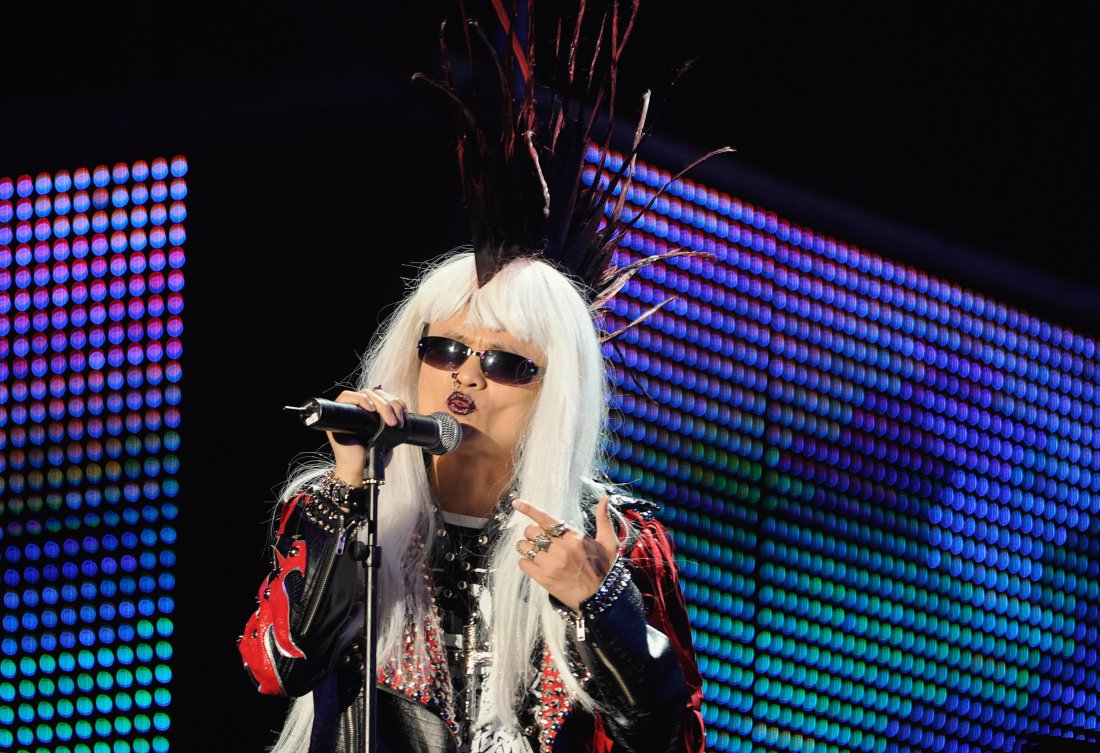
Fantastic Blog. Very much enjoyed reading.